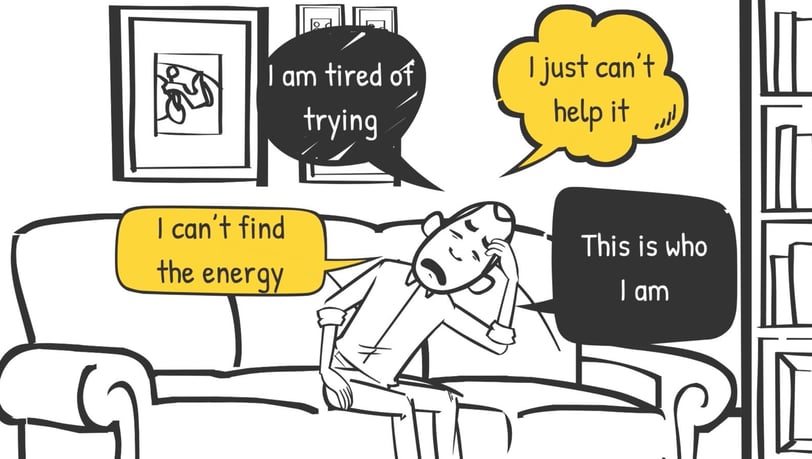Read about why it’s important to master this skill.
When you experience this, you can reach new levels in your relationship.
Patterns and habits… how many do you actually have?
Prepare yourself before reading the answer in the next sentence. Here it comes…
You are one gigantic collection of countless patterns and habits. You thought you had a few? Then this is an important insight and intended as a wake-up call. You are your habits, and that’s perfectly fine until some of them no longer work for you, and you actually want to change them. But I’ll explain that to you shortly. Why do you think they are countless? Let me just mention a small list to stimulate your insight into this. The way you lie in bed, wake up, get out of bed, dress, open the door of your room, walk, hold your toothbrush, comb your hair, wash your face, how you sit on the toilet, how you wash your hands afterward, how you hold your fork, put coffee in the machine, tie your shoelaces, turn on the light, pick up your phone, grab the front door, how you step over the threshold, how you open your car, how you greet someone, all traffic actions on your way to work, all your routine actions at work, etc., etc., etc., etc. I think you’re starting to understand it a bit.
How do you acquire those things?
That’s called life. From the day you were born, your brain has been learning. As a child, you grow up. Countless things are demonstrated to you, and you take them over by repeating them until they “become second nature.” Positive or unpleasant experiences while growing up translate into behavior and are stored as advice to yourself. Together, all of this forms your habit zone. I deliberately don’t speak of the comfort zone because it often has nothing to do with comfort. But however you get there, there is one way to create habits that must not go unmentioned because it is your way to new behavior. Namely, by repeating the same behavior at least 30 times in the same situation. Your brain works wonders by then taking it over as a habit – read automation. So, you don’t have to do anything else, just keep practicing. As children, we knew this. And it is precisely this principle that we use in coaching to break through old patterns by practicing new behavior long enough until the new software takes over.
All your routine actions are habits
And when those habits follow each other like a standard movie, they form a pattern. You do all of this on autopilot. Think of it as if that supercomputer in your head flawlessly regulates it all through programmed software. Fortunately, because it is completely normal, functional, and very convenient; otherwise, you would have to think again about how you want to do each action. That would make you extremely tired. Luckily, you don’t have to do that because those routines at the automatic level provide predictability and allow you to do other things with your thoughts and thinking capacity. It is, therefore, completely normal that your brain guards that what you do fits within your habits, and if you start to deviate from those habits, your brain communicates with you in various ways. Two important ones are the feeling of resistance to the new and old beliefs that hold you back in your old behavior.
Those thoughts are always wonderful excuses
In that respect, your brain is remarkably resourceful. It always finds a thought that makes sense to you, powerful enough to keep you in your current behavior. Our biggest excuse? That’s just the way I am! Well, if you really believe that, you are, in a way, fused with your behavior. Then you seem to be stuck. Apparently, because that’s not you; that’s what you do. The book “Addicted to Love” by Jan Geurtz explains this very well. Highly recommended for those who want to know more about it. The realization that you are not your behavior puts you in a responsible position from which you can take new steps. Fortunately, I can tell you that this is achievable for almost everyone, provided that you really want to change. However, if there are strong disruptive factors or conditions like addiction or psychological disorders, they need to be addressed first. Remember that your brain always supports you, even when it doesn’t seem like it.
If you want to learn more about this topic, then our online training the Apprentice level will excite you.


